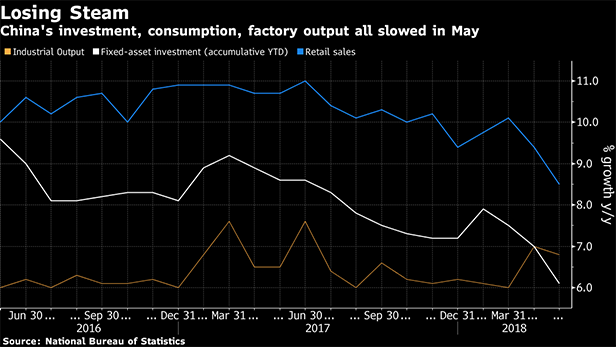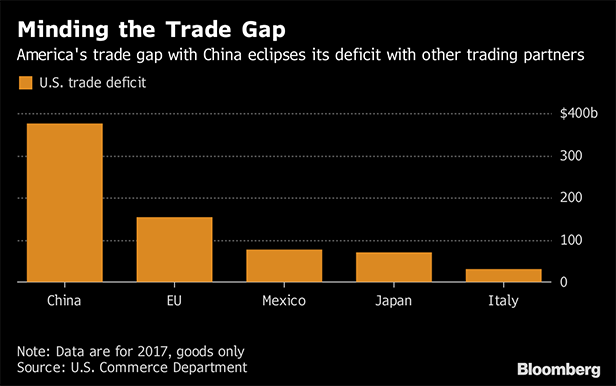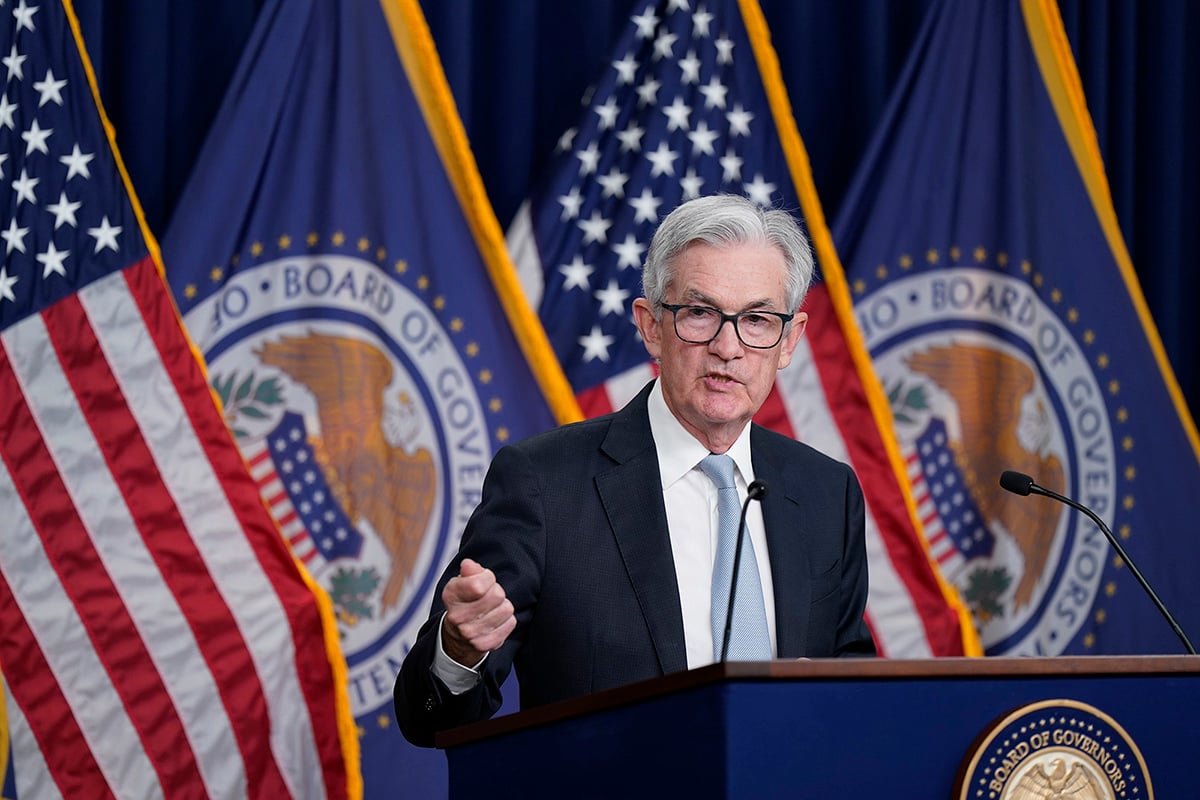 The U.S. president last weekthreatened 25 percent tariffs on $50 billion in Chinese productsand said at the time he would impose even more duties if Chinaretaliated. A counter punch was swift in coming, with a statementfrom Beijing on Friday night that it would "strike backforcefully."China's threat “clearly indicates its determination tokeep the United States at a permanent and unfair disadvantage,”Trump said Monday. “This is unacceptable. Further action must betaken to encourage China to change its unfair practices, open itsmarket to United States goods, and accept a more balanced traderelationship.”The latest salvo came as Trump seeks to convince U.S.lawmakers to let Chinese telecom company ZTE Corp. remain inbusiness after it became a bargaining chip in the trade row.Earlier this month, the Trump administration gave ZTE a reprievefor breaking a sanctions settlement after the company agreed to payfines, change management, and agree to American oversight. ZTE'ssurvival has been a key goal of Chinese President Xi Jinping.Sharesin ZTE declined after the Senate passed legislation on Mondayevening that would restore penalties.The U.S. imported $505 billionof goods from China last year and exported about $130 billion,leaving a 2017 trade deficit of $376 billion, according to U.S.government figures. The fact that America imports more from Chinawill make it harder for Beijing to match Trump's attacks, accordingto Derek Scissors, a resident scholar at the conservative AmericanEnterprise Institute in Washington who focuses on China.
The U.S. president last weekthreatened 25 percent tariffs on $50 billion in Chinese productsand said at the time he would impose even more duties if Chinaretaliated. A counter punch was swift in coming, with a statementfrom Beijing on Friday night that it would "strike backforcefully."China's threat “clearly indicates its determination tokeep the United States at a permanent and unfair disadvantage,”Trump said Monday. “This is unacceptable. Further action must betaken to encourage China to change its unfair practices, open itsmarket to United States goods, and accept a more balanced traderelationship.”The latest salvo came as Trump seeks to convince U.S.lawmakers to let Chinese telecom company ZTE Corp. remain inbusiness after it became a bargaining chip in the trade row.Earlier this month, the Trump administration gave ZTE a reprievefor breaking a sanctions settlement after the company agreed to payfines, change management, and agree to American oversight. ZTE'ssurvival has been a key goal of Chinese President Xi Jinping.Sharesin ZTE declined after the Senate passed legislation on Mondayevening that would restore penalties.The U.S. imported $505 billionof goods from China last year and exported about $130 billion,leaving a 2017 trade deficit of $376 billion, according to U.S.government figures. The fact that America imports more from Chinawill make it harder for Beijing to match Trump's attacks, accordingto Derek Scissors, a resident scholar at the conservative AmericanEnterprise Institute in Washington who focuses on China. “All they can do is impose highertariffs on a smaller subset of products,” he said. That being said,“China is going to retaliate,” he added.
“All they can do is impose highertariffs on a smaller subset of products,” he said. That being said,“China is going to retaliate,” he added.Copyright 2018 Bloomberg. All rightsreserved. This material may not be published, broadcast, rewritten,or redistributed.
Complete your profile to continue reading and get FREE access to Treasury & Risk, part of your ALM digital membership.
Your access to unlimited Treasury & Risk content isn’t changing.
Once you are an ALM digital member, you’ll receive:
- Critical Treasury & Risk information including in-depth analysis of treasury and finance best practices, case studies with corporate innovators, informative newsletters, educational webcasts and videos, and resources from industry leaders.
- Exclusive discounts on ALM and Treasury & Risk events.
- Access to other award-winning ALM websites including PropertyCasualty360.com and Law.com.
*May exclude premium content
Already have an account? Sign In
© 2024 ALM Global, LLC, All Rights Reserved. Request academic re-use from www.copyright.com. All other uses, submit a request to [email protected]. For more information visit Asset & Logo Licensing.






